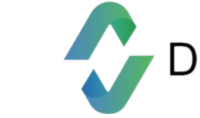In a world governed by numbers, money has become the master metric of human worth. We measure our lives in decimals and digits, salaries, savings, stock values, as though a spreadsheet could capture the full texture of human experience. But behind every number lies a story that numbers alone can’t tell.
Money Disquantified isn’t just a concept; it’s a quiet rebellion. A movement to rethink what wealth really means, and to restore value to the things that money can’t measure.
When Numbers Replace Meaning
We live surrounded by systems that promise objectivity: credit scores, interest rates, and net worth calculators. They claim to simplify our financial lives, but they also reshape how we see ourselves.
A credit score doesn’t know you stayed home to care for your parent.
A financial algorithm doesn’t see the anxiety of someone working two jobs to stay afloat.
A profit-and-loss statement doesn’t account for the relationships eroded by endless work.
In quantifying everything, we have disquantified ourselves, stripped away the nuances, emotions, and ethical dimensions that make money human. The tragedy isn’t that we measure; it’s that we mistake the measurement for the meaning.
The Idea Behind Money Disquantified
At its core, Money Disquantified calls for a shift in how we think about wealth, success, and progress. It’s not anti-money, yet it’s pro-human.
To “disquantify” money means to:
-
Reclaim qualitative value. Measure life not only by what it costs, but by what it gives back in purpose and peace.
-
Challenge financial reductionism. Refuse to see money as the only form of value or success.
-
Reconnect economics to ethics. Recognize that every financial decision, personal or systemic, has moral and emotional consequences.
These sites collectively explore how finance, data, and human behavior intersect how we can rebuild systems that measure not only profit, but presence.
Read also: Money Disquantified .org: Beyond What Numbers Can Measure
The Cost of Quantification
There’s a hidden tax to our obsession with numbers, not financial, but emotional and societal.
-
Wealth Without Wellness
The endless pursuit of more has made wealth a stressor, not a source of security. The richer we become in material terms, the poorer we often feel in time, attention, and peace of mind. -
Data Without Context
Financial technologies have given us powerful tools, but tools without empathy. Algorithms decide who gets loans, who gets jobs, and who gets left behind. The human narrative vanishes inside statistical models. -
Growth Without Grounding
Our economies reward speed and scale, even when they erode the very things that sustain us: relationships, ecosystems, a communities. Growth at any cost eventually costs everything.
A New Language of Value
To live “disquantified” is not to reject the economic world but to redefine how we participate in it.
It means asking:
-
What would it look like if enough were more admirable than more?
-
How would business behave if profit included planet and people in its balance sheet?
-
What if we treated money as a mirror of priorities rather than a measure of power?
This shift starts small in how we spend, save, give, and work. It’s in choosing to value rest as much as results, purpose as much as pay, relationships as much as returns.
Money, after all, is only ever as moral as the hands that hold it.
The Path Forward
Platforms like Money Disquantified and Disquantified.com are part of a broader awakening, one that blends economics, ethics, and empathy. They are not just rethinking finance; they are re-humanizing it.
They remind us that the most valuable assets in life rarely appear on a balance sheet:
-
Time spent meaningfully.
-
Integrity is kept under pressure.
-
Love given without expectation.
-
Work that leaves the world a little better than it found it.
In the end, the question isn’t how much we earn, it’s what our earning means.
Conclusion: The True Wealth
To disquantify money is to return it to its rightful place, a tool, not a theology. It’s a reminder that our worth was never meant to be reduced to digits.
If we can relearn how to see money not as the goal, but as a language that expresses our values, relationships, and responsibilities, then maybe we can build an economy that feels more like humanity itself. Because the richest lives aren’t always the ones with the most zeros. They’re the ones that add up in meaning.

